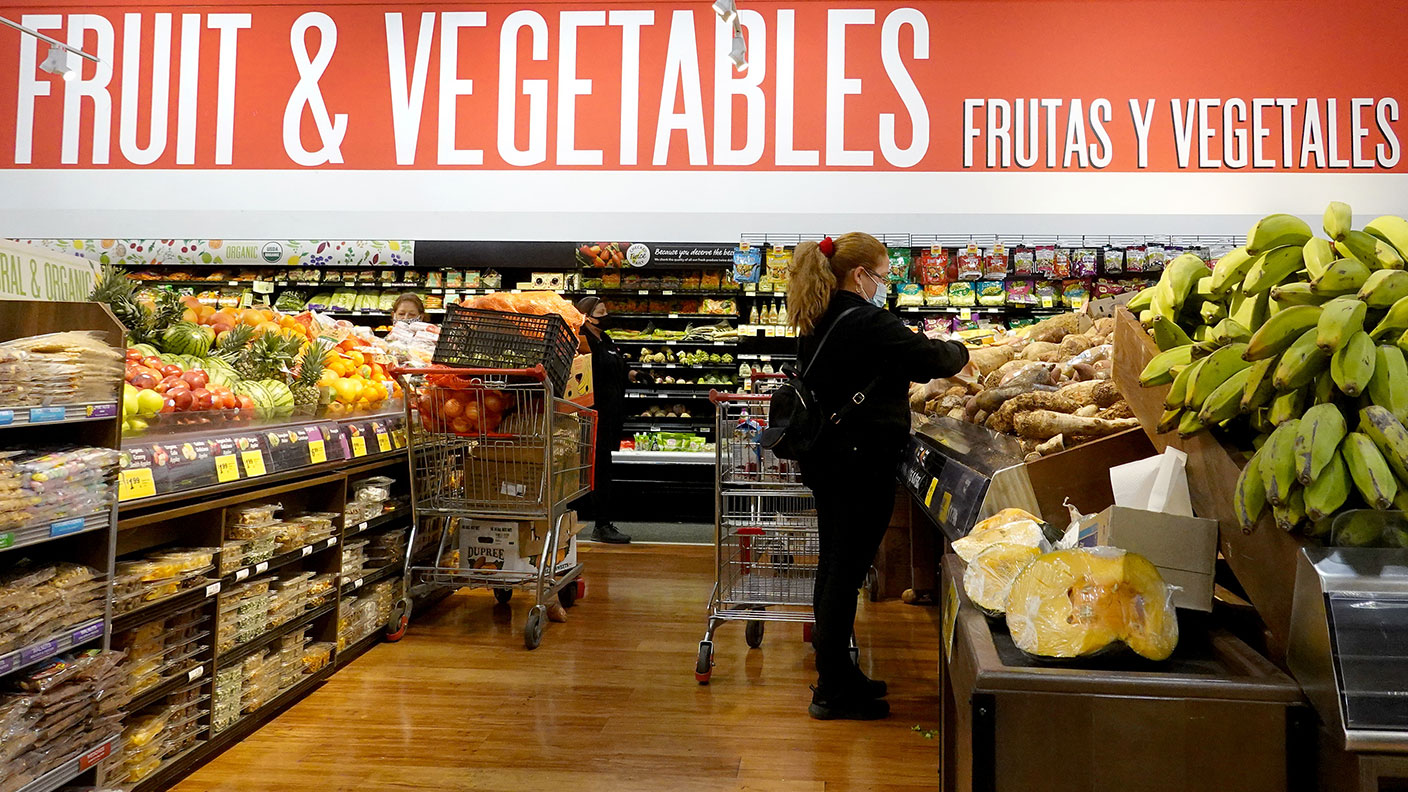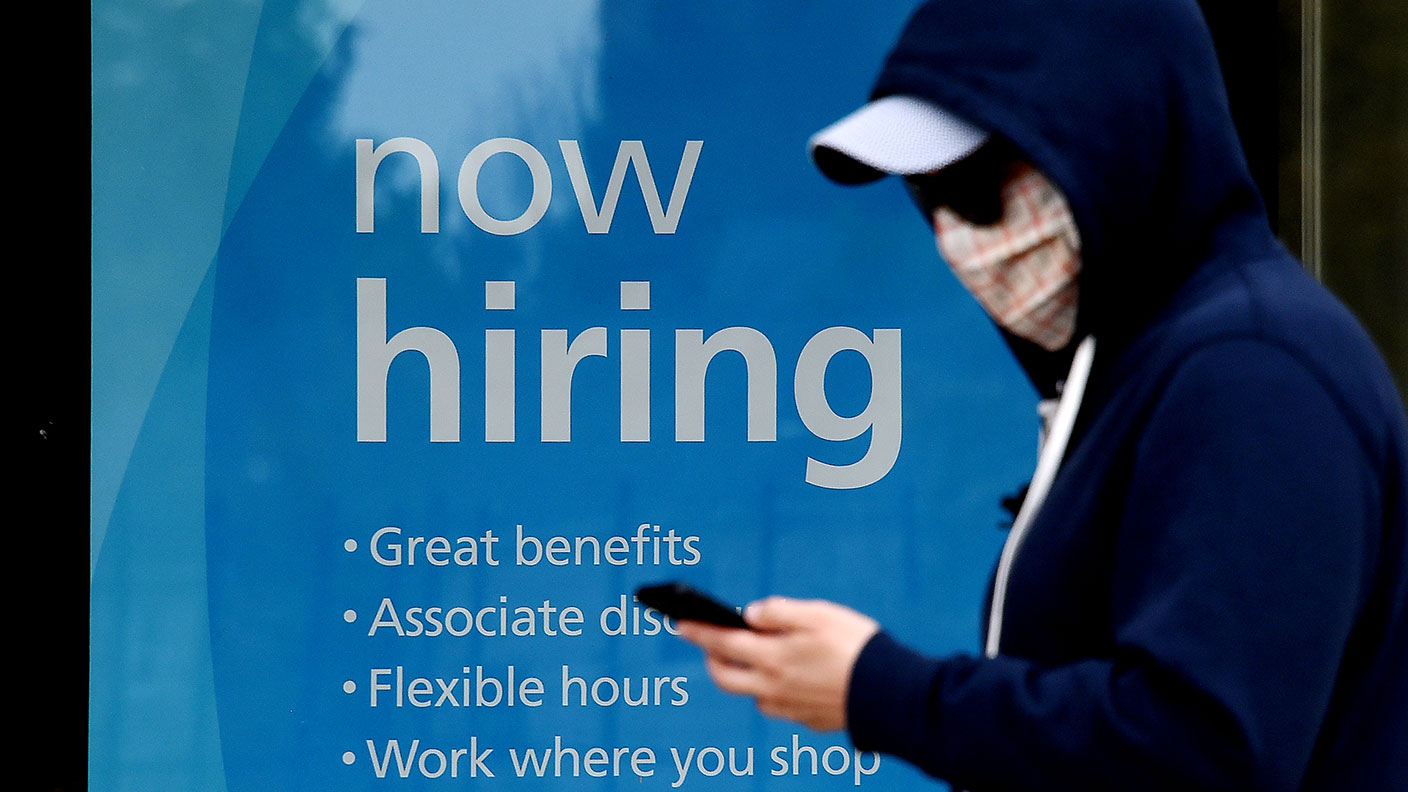The US Federal Reserve is quietly paving the way for further stimulus
America's central bank is printing money again. It's not more QE, says the Fed, it's just maintaining the current level of liquidity. John Stepek explains what's going on and how it will affect you.

Get the latest financial news, insights and expert analysis from our award-winning MoneyWeek team, to help you understand what really matters when it comes to your finances.
You are now subscribed
Your newsletter sign-up was successful
Want to add more newsletters?

Twice daily
MoneyWeek
Get the latest financial news, insights and expert analysis from our award-winning MoneyWeek team, to help you understand what really matters when it comes to your finances.

Four times a week
Look After My Bills
Sign up to our free money-saving newsletter, filled with the latest news and expert advice to help you find the best tips and deals for managing your bills. Start saving today!

It's been another exciting week on the political front.
Will the US and China come to sort of trade deal? Will the UK and the EU come to some sort of Brexit deal?
I don't know. Sorry.
MoneyWeek
Subscribe to MoneyWeek today and get your first six magazine issues absolutely FREE

Sign up to Money Morning
Don't miss the latest investment and personal finances news, market analysis, plus money-saving tips with our free twice-daily newsletter
Don't miss the latest investment and personal finances news, market analysis, plus money-saving tips with our free twice-daily newsletter
But I think it's worth looking at something else that happened this week something that slipped under the radar a bit.
But which could potentially be quite bullish for markets.
The Fed prints money but it's not money printing
The Federal Reserve America's central bank did something interesting earlier this week.
Fed boss Jerome Powell was giving a speech to a group of academics and economists on Tuesday. He gave his usual "the economy is doing well but we're going to cut interest rates at the next Fed meeting this month" view of things, which didn't surprise the market at all.
However, what did come as a surprise was his decision to start printing money to buy bonds again.
This, he said, shouldn't be mistaken for quantitative easing (QE printing money to buy bonds). Oh no, said Powell. "I want to emphasise that growth of our balance sheet for reserve management purposes should in no way be confused with the large-scale asset purchase programmes that we deployed after the financial crisis."
So what's going on then? This all boils down to problems in the "repo" market. Put simply, banks lend money to one another over the very short term to cover things like immediate needs for cash. Usually, there are no problems in this market because no one is going to go bust overnight and so no one is worried about lending their cash for this period of time.
Those of you with long memories will recall that we knew things were getting bad in the run-up to the 2008 crisis because banks no longer wanted to lend to one another overnight because no one knew who owned all the dodgiest mortgage bonds.
So it was a bit scary last month when we started to see similar spikes in repo market borrowing costs. There was also lots of dark talk, referencing the credit crisis, about how maybe something sinister was going on.
This isn't QE4 so much as QE three-and-a-half
Much as I like a spooky markets story, I don't think this one is warning of imminent danger.
I don't want to get into the mechanics of the repo market because it hasn't half caused a lot of furious arguments on Twitter in that way that only something relatively minor but also extremely arcane usually can.
I will delve into it in more technical terms if I feel that there's more to it. But for now, I think the easiest way to look at it is that our financial plumbing is now dependent on central banks sticking their oars in much more aggressively than they used to, in order to keep everything flowing smoothly through the pipes.
When the Fed did QT (quantitative tightening) effectively draining the tanks of what it considered to be excess liquidity it just showed up how rickety the whole thing was.
That's not very encouraging. But equally I suspect it is evidence of a longer-term problem rather than an imminent systemic meltdown. And also, it's not really surprising that the monetary system is pretty rickety now, given that it has been driven to extremes that few, if any of us, ever really contemplated a little over a decade ago.
So is this QE4, as some people have called it? I probably wouldn't go that far. Yes, in terms of the mechanics, this is the same sort of thing as QE the Fed is expanding its balance sheet.
But QE4 suggests that this is something that's being done with the goal of driving interest rates down or "stimulating" the economy. This is more about maintaining the current level of liquidity and stimulus in the system, and avoiding monetary policy inadvertently becoming tighter.
You can argue that this is semantics but I don't think it is. QE4 would arguably put a rocket up the stockmarket and also from these levels, you'd expect it to dent bond prices (ie, drive yields higher, in expectation of inflation). As it stands, I think the impact is not that extreme. You could maybe think of it as QE three-and-a-half
Of course, that's not to say that it doesn't pave the way for easier policy further down the line. Indeed, we've already established that the Fed is viewed as 100% certain to cut interest rates again later this month.
And more to the point, it makes the monetary backdrop much more conducive to a rally should either of the two things we mentioned in the introduction a China/US trade deal, or a UK/EU Brexit pathway actually inspire a bit of investor optimism.
On the investment implications of Brexit, by the way, if you haven't already subscribed to MoneyWeek magazine and you want to get up to date on what's been going on well, now is the perfect time. We've compiled a special report based on all of our most recent coverage to get you up to speed quickly and painlessly. Not only that, but you can get your first 12 issues for £12, too sign up here now.
Get the latest financial news, insights and expert analysis from our award-winning MoneyWeek team, to help you understand what really matters when it comes to your finances.

-
 How a ‘great view’ from your home can boost its value by 35%
How a ‘great view’ from your home can boost its value by 35%A house that comes with a picturesque backdrop could add tens of thousands of pounds to its asking price – but how does each region compare?
-
 What is a care fees annuity and how much does it cost?
What is a care fees annuity and how much does it cost?How we will be cared for in our later years – and how much we are willing to pay for it – are conversations best had as early as possible. One option to cover the cost is a care fees annuity. We look at the pros and cons.
-
 Is the US in recession and does it matter?
Is the US in recession and does it matter?Analysis There's a heated debate over whether the US is in recession or not. But why does it matter? John Stepek explains
-
 Has the chancellor done enough to save the UK from recession?
Has the chancellor done enough to save the UK from recession?Analysis UK Chancellor Rishi Sunak announced a new package last week to ease the cost of living crisis. John Stepek explains whether the risk of a UK recession still remains.
-
 Is the UK too open to overseas takeovers?
Is the UK too open to overseas takeovers?Analysis Data shows that the UK is more open to overseas takeovers than other major markets. John Stepek asks: should investors care?
-
 How to manage your money as inflation just keeps rising
How to manage your money as inflation just keeps risingAnalysis Uk inflation is at a 30-year high – and it won't be falling any time soon. So what can you do? John Stepek explains how to manage your money to combat rising prices.
-
 Inflation is going to stay even higher for even longer
Inflation is going to stay even higher for even longerAnalysis Commodity prices – everything from energy to food – are going through the roof. And that’s not likely to end any time soon, says John Stepek. Here's what that means for how you invest.
-
 Inflation is incredibly inconvenient, as we’re all about to learn
Inflation is incredibly inconvenient, as we’re all about to learnAnalysis Inflation doesn't just eat into your wealth, it eats into your time – and can be devastating for those on the lowest incomes. And it's not going away any time soon, says John Stepek. Here's how to invest.
-
 The cost of living crisis is global – US inflation just hit another 40-year high
The cost of living crisis is global – US inflation just hit another 40-year highAnalysis With US inflation running at 7.5%, it’s clear that the cost of living crisis is not confined to the UK. John Stepek looks at the likely reaction from governments and central banks, and what it means for you.
-
 The strong US jobs report is good news for the economy, but not so much for markets
The strong US jobs report is good news for the economy, but not so much for marketsAnalysis January's US jobs report came in much stronger than anyone was expecting, with 467,000 new jobs added to the economy. But things might not be quite as rosy as they seem, says John Stepek. Here's why.